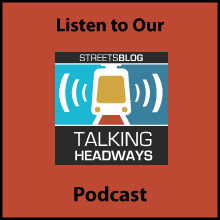I think there have been a lot of people that are optimistic about the potential for climate havens though many of the items we’ve shared here do have a healthy dose of skepticism.
But after Hurricane Helene shot through Florida, Georgia, and North Carolina and left tragedy and floodwaters in its wake this past weekend, it seems my mom’s old adage of “pick your natural disaster” wherever you live around the country is even more apt. There’s really nowhere safe from climate impacts or extreme weather and though some places may have more risk than others, there’s still a chance.
So I was also struck by an item that included maps from the New York Times which displayed population growth over climate hazards like the potential for hurricanes, extreme heat, or flooding from torrential rainfall. Sure the population growth and change is what you would expect, but I didn’t expect to be hit in the face so hard with the sprawl.
The maps show that cities have been on net losing population, even in fast growing states like Texas which as the article mentions puts a strain on all kinds of infrastructure systems, not just transportation and housing but energy resources. But all this suburban and exurban growth continues apace and has a steep price.
We used to talk about these as the costs of sprawl and how urban development was more efficient, but I think now that accounting may be too simplistic. Perhaps now we should be looking past basic costs on their own and look at how climate change is going to force a restructure of whole systems. Building codes, home insurance, emergency management, energy systems. There’s a whole reworking of society going on underneath the surface that perhaps we won’t see in its totality until after it’s happened.
And some sectors, unless they change, could be left behind. During a recent conversation on the podcast with my friend and developer Jim Kumon (Part 1 | Part 2 ), he discussed the development process, structured capital, and a coming new era as this suburban version flames out. “Our built environment is a production of an outcome of the way that we structured capital. And so we keep getting the same thing because the money keeps being set up to do the same thing.”
That same thing seems to be the sprawl. It’s relentless. Bolstered by transportation departments expanding roads through self fulfilling travel forecasts. It’s also bringing new risks.
As Jim mentioned…”And so humanity has a pretty good cycle about every 70 to 80 years where we flip a switch and something serious happens. You know, whether it’s the industrial revolution to things that happened around post-Civil war and the railroads, and then World War II and suburbia, and we’re kind of running on the fumes of that last 80 year cycle, right? We’re kind of past due. And now the pandemic and other things that have changed about now, we’re into a new cycle. We don’t really know what that is yet.”
***
For this intro post and more news in your inbox every morning, sign up for a two week free trial of The Overhead Wire Daily, our popular newsletter established in 2006.










